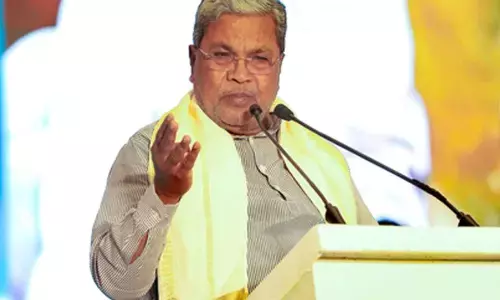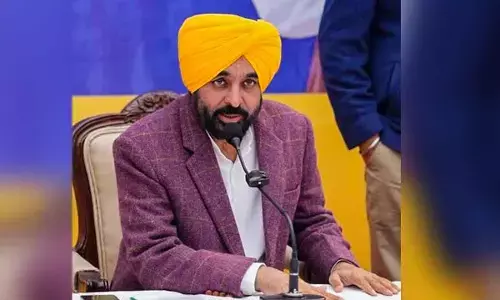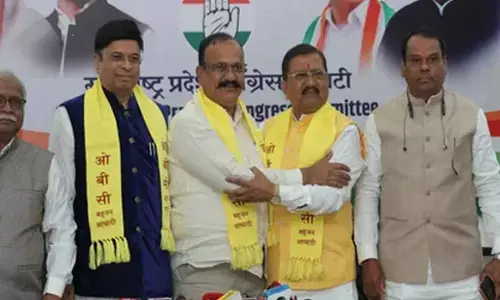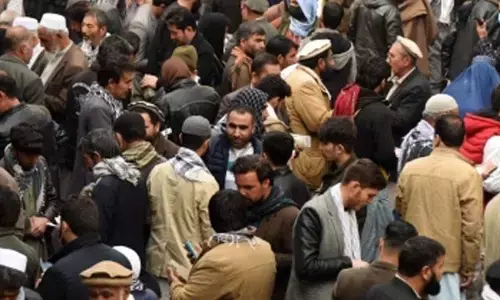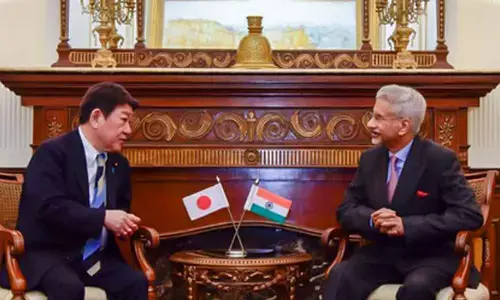Engineering a brighter tomorrow
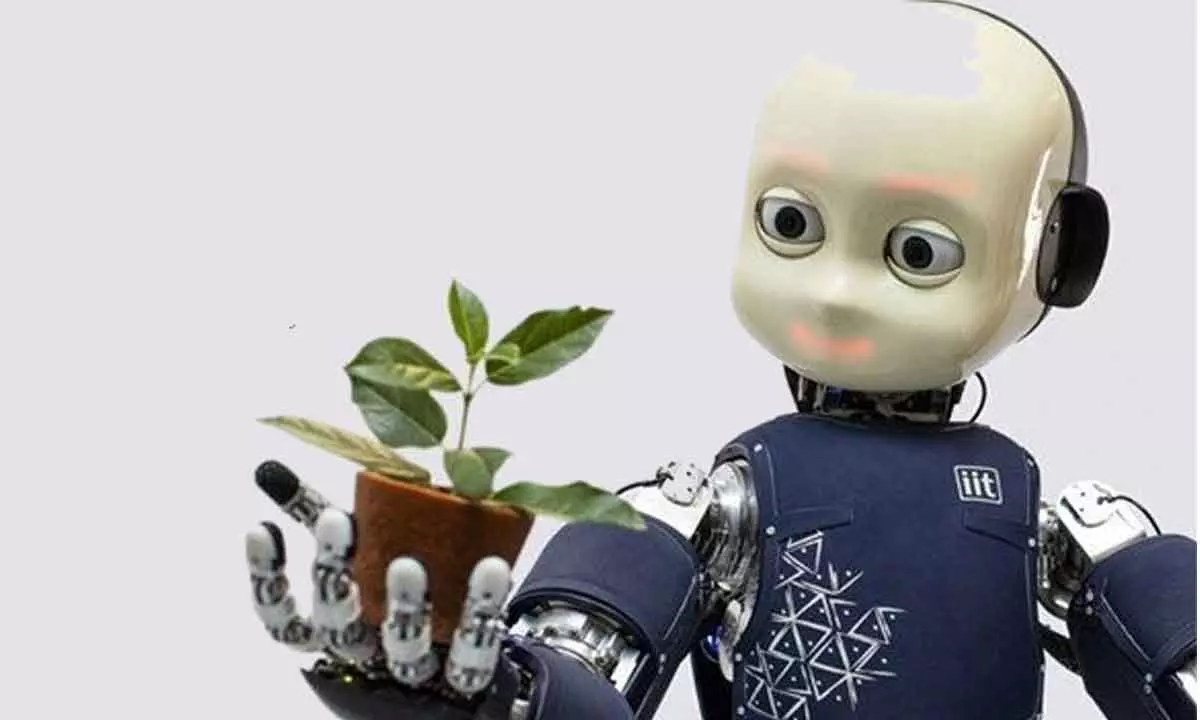
My joining the Indian Administrative Service, really, was not on account of any desire to do so.
My joining the Indian Administrative Service, really, was not on account of any desire to do so. My father was very particular that I should first take the civil services exam and then decide upon a career depending upon the result of that attempt. I was keen on continuing it in the future the work I had earlier begun working for a doctorate in Mathematics. My mother, however, was bent on making me an engineer. At her instance, I had, in fact, secured a seat in an engineering college at Kakinada as a fallback option. Eventually, in deference to my father's wishes. I took the civil services exam and, as good fortune would have it, got through. I was, after all, not a destined to be an engineer.
Talking of engineers reminds me of an incident involving my good friend and cousin brother Achyut. He had just finished his B. Tech in Electrical Engineering from IIT (Madras), and was visiting us at Hyderabad. One morning, my father, Achyut and I were having breakfast, when father, of whom Achyut was literally terrified, innocently asked him what the difference was between a radio telescope and a radar telescope. Achyut drew a blank, and father said to him, "your ignorance is colossal, almost equal to my knowledge."
As in every year after 1968, September 15 this year was celebrated as Engineer's Day in India, the day being chosen as it marks the birth anniversary of celebrated engineer and civil servant, Mokshagundam Visvesvaraya. Known for revolutionising the flood control system in Hyderabad, and a Chief Engineer of the Krishnarajasagara Dam near Mysore, he was also famous for inventing "automatic locks" and "block irrigation systems," which are considered engineering wonders. He devised an efficient way to filter water through "collector wells," which are rarely seen anywhere in the world. In recognition of his achievements, he was decorated with India's highest civilian award, 'Bharat Ratna.'
Engineering is all about applying the theories of science to solve practical problems. The technology and gadgets we use are only some among their many inventions. The delivery of most of the services essential to life, such as electricity, television, medical imaging, sewage networks, telephone, water networks and railway lines is the result of engineering.
Engineers are increasingly required to play a leadership role in sustainable development, overcoming global challenges such as depletion of resources, environmental pollution, rapid population growth and damage to ecosystems. In fact, they have completely changed the world we live in, from modern homes, bridges, space travel, and cars to the latest mobile technology. They also play an important role in sustainable development by planning and building projects that preserve natural resources and are cost-efficient and support human and natural environments.
Engineers contribute to almost all disciplines. Healthcare platforms engineers constitute a vital part of the scientific environment that drives healthcare forward. They optimize procedures, enhance how patients experience treatment, and design strategies to minimize costs. Another important field in which engineers play a vital role is disaster management. Their products and technology help detect early warning and forecasting, thus mitigating the impact of disasters.
Agriculture engineering is the process of combining of food science, civil engineering, and chemical engineering and electrical, with knowledge of agriculture. Agricultural engineers perform tasks such as planning, supervising and managing the building of dairy effluent schemes, irrigation, drainage, flood water control systems, performing environmental impact assessments, agricultural product processing and interpret research results and implement relevant practices. The entertainment Industry also offers a wide variety of jobs.
The film industry, the media industry and the gaming industry have a huge requirement of engineers for designing and editing purposes. The subject of industrial engineering & management, which deals with the industrial design and construction, management, and application of science and engineering principles to improve the industrial environment, is also an area an which engineers have a substantial role to play.
Engineers play an important role in sports, especially in the design of sporting equipment, through their contribution to the design of equipment and gear, from tennis racquets to swim. Sports engineering is the art and science of designing, making, and maintaining different sports goods, sports infrastructure, and other supportive products. It involves studying the scientific aspects of sports performance by analyzing the performance of athletes. New technologies can keep the sport alive and relevant.
Engineering is the largest industrial sector in India and accounts for 3% of the country's Gross Domestic Product (GDP).
India became a permanent member of the Washington Accord (WA) in June 2014. It is now a part of an exclusive group of 17 countries that are permanent signatories of the WA, an elite international agreement on engineering studies and mobility of engineers. India's engineering sector has witnessed remarkable growth over the last few years.
The growth in engineering goods exports in recent years has largely been on account of the zero duty Export Promotion Capital Goods (EPCG) scheme of the Ministry of Commerce & Industry which forms part of the Foreign Trade Policy (FTP) of the Government of India. Other policies and initiatives of the Indian government, such as allowing 100% foreign direct investment (FDI) have helped the growth of the sector.
The Government of India has taken several initiatives to support and enhance the competitiveness of the domestic engineering goods manufacturing firms such as the "Make in India" initiative, and the Production Linked Incentive (PLI) scheme. In the recent past, there have been many major investments and developments in the Indian engineering and design sector.
The engineering sector is the largest of the industrial sectors in India. It accounts for 27% of the total factories in the industrial sector and represents 63% of the overall foreign collaborations. The engineering sector, being closely associated with the manufacturing and infrastructure sectors, is of huge strategic importance to India's economy.
(The writer is former
Chief Secretary, Government
of Andhra Pradesh)
(The opinions expressed in this column are that of the writer.
The facts and opinions expressed here do not reflect the views
of The Hans India)








